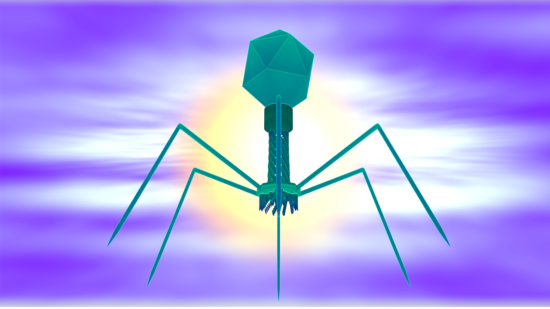“Antibiotic resistance could be countered by anti-bacterial viruses”
“Viruses that invade bacteria but leave human cells alone could help scientists find ways around the growing problem of antibiotic resistance, researchers have said.
A study has showed that a cocktail of bacteriophages, or “phages”, resulted in no side effects when given to individuals with gastrointestinal problems and did not appear to greatly disrupt the diversity of microbes in the gut – the so-called gut microbiota. But they did reduce levels of one marker of inflammation and certain problematic species of bacteria.
“[Phages] are a wonderful alternative to antibiotics,” said nutrition blogger and scientific consultant Dr Taylor Wallace of George Mason University, Virginia, who is presenting the results of the study at the American Society for Nutrition annual meeting in Boston. “These are selective, you don’t have any problem with bacterial resistance … and they are safe.”
Experts say microbial resistance to antibiotics, largely fuelled by overuse and misuse of the drugs, has left the world facing “a dreadful post-antibiotic apocalypse” as such treatments become ineffective.
The new research, funded by probiotic company Deerland Enzymes, split 32 participants, all of whom reported recurring gastrointestinal problems but were otherwise healthy, into two groups. One group was given a placebo capsule for four weeks, the other group was given a capsule from the company containing four phage strains expected to attack E coli. Neither the participants nor the researchers knew which capsules were given to whom during the trial.
After four weeks both groups stopped taking their capsules and, two weeks later, had their capsules swapped to the opposite type, which were then taken for a further four weeks.
The findings revealed that there were no side effects from taking the phages, but that the cocktail did appear to have some impact, including a drop in levels of a protein linked to inflammation and allergic response, and a drop in certain bacterial species that can cause problems, including Clostridium perfringens. “We saw some increases in beneficial bacteria,” added Wallace.”
Source: The Guardian



